 Michael O'Brien Michael O'Brien |
You dig in and get the job done. Whatever it takes. Everyone would agree that this is good client service. It’s what any good PR practitioner would do to help their client in their time of need.
But, the truth is, excellence in client service goes far beyond mitigating a media crisis.
|
|
Superior client service is a day-in, day-out commitment. It’s a mindset. And, agencies don’t always get it right. The agency-client relationship must be based on trust, mutual respect, nimbleness and a customer service ethic.
Times have changed. Technology, global reach, endless new communications channels and an unparalleled level of sophistication have changed our business forever. Has client service been lost along the way? Because we can communicate by email 24 hours a day, should we? Or would an in-person meeting or phone call better serve the client?
It’s time to remember that the PR agency business is still a people business. It’s about relationships, alongside results. While our PR world has changed drastically, client service should still be our top priority.
We’ve identified seven pillars for excellence in client service. If you follow these, you can enjoy a long, prosperous relationship with clients. If you’re a client and your agency isn’t delivering on these pillars, well, maybe it’s time to find another partner.
Reliability
Do you believe your client can trust, predict and depend upon the agency to follow through on its commitments? Client service is all about doing what you said you would do, whether it’s meeting a promised deadline or showing up for meetings on time. Consistency builds confidence with clients. Clients count on their PR partners, and falling short in this area builds resentment and anxiety.
Reliability is also about responsiveness. Clients need to know their team is at-the-ready to assist in a crisis, deliver on an urgent need, but also can handle the small things, such as responding to emails and phone calls in a timely manner.
Understanding
Do you “get” your client? Clients can be demanding, but put yourself in their shoes and seek to understand their pressure points (i.e., what makes them tick). If a client knows their agency is focused on solving their problems, is aligned in purpose, and dedicated to making their life just a little bit easier, they will reward you.
Agencies also need to fully understand their client’s business. No matter what level, agency personnel should invest the time to learn their client’s product/service, goals and objectives, weaknesses and strengths, competitors, etc. Nothing drives clients crazier than an account person who doesn’t know them.
Quality
How satisfied are your clients with the quality of your work? We’ve all heard the problems with “quantifying” quality. It’s all in the eyes of the beholder, right? Maybe not. What really matters is how the client defines quality. Too many agencies define their work by their own standard. Instead, agencies need to quickly learn what the client views as exceptional work and then meet that standard every day. If you’re not sure, simply ask your client.
Business relations
How easy do you make it to do business with your firm? Strained client-agency relationships are painful to everyone. Often, systems and processes get in the way of the relationship. Instead of focusing on delivering results, clients are pouring over a 20-page invoice, or trying to understand complex billing codes. Agencies should make it easy to do business with them. The more time spent on administrative duties, the less time is spent on driving positive outcomes. Simplicity is the name of the game.
Budget stewardship
How closely do the total costs correspond to your clients’ expectations? Let’s face it, no one likes to deal with finances. Not the client. Not the agency. But it’s a necessary and important part of the business.
The biggest problem seems to be with expectations. Did the agency deliver what it was supposed to for the price that was promised? But transparency may be a more critical factor. Keeping the client informed of the budget along the way prevents much heartache.
Personnel
How satisfied are your clients with the attitude, courtesy, and professionalism of your agency staff? “Confident” and “self-assured” can be an asset. “Egotistical” and “arrogant” turn clients off. This is such a perplexing phenomenon within some agencies.
Talented individuals with questionable people skills continue to thrive. Exceptional client service requires extraordinary interpersonal skills.
The why
What drives your agency’s staff to do the work they do? It’s a simple question, but it’s often difficult to answer. You might think that clients don’t — or shouldn’t — care. But they do. Deeply. They want to know that you’re committed to their cause, that you’re all in. Agency staff should know why their client matters and why they’ve committed themselves to this line of work. It can make all the difference in going the extra mile.
Excellence in client service isn’t just table stakes any more. Agencies that do it well can differentiate themselves and form long-lasting relationships with clients. If you’re not convinced, consider service providers in your non-work life. When you feel that they are committed to you, that they have taken the time to understand you and delivered on their promises, you remain loyal.
When these people treat you with respect, are up-front about costs and they put a premium on quality, you remain faithful. When they’re responsive and make working with them easy, you reward them with your business.
PR is a people business. Loyalty is earned. And, it takes more than answering a late-night phone call to prove it to your clients.
* * *
Michael O’Brien is Executive Vice President and Managing Director of JPA Health Communications’ Washington, D.C., office.

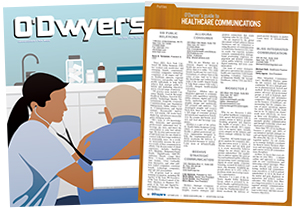

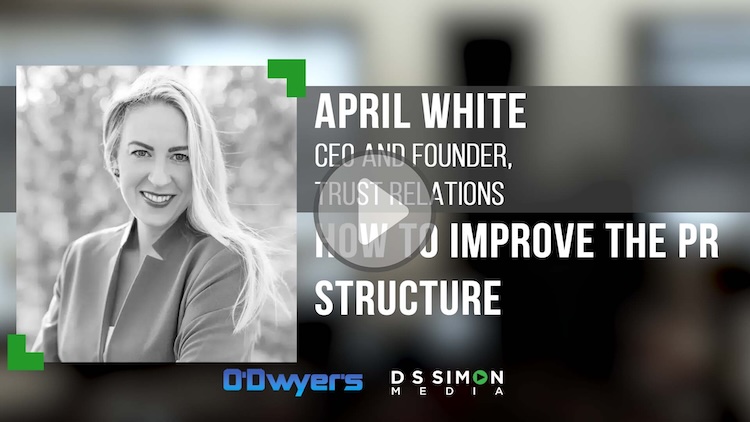
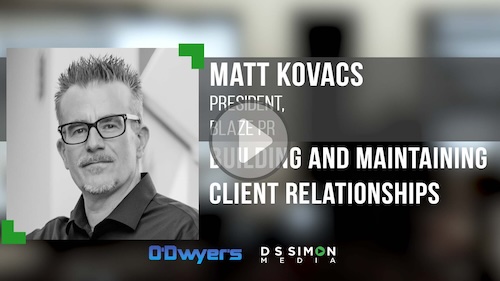

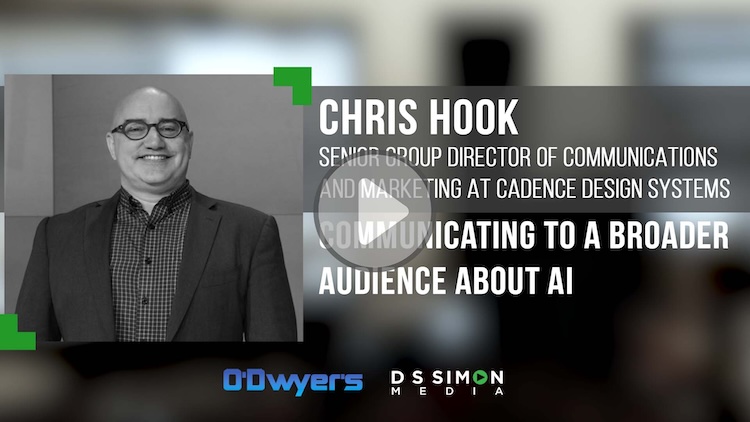
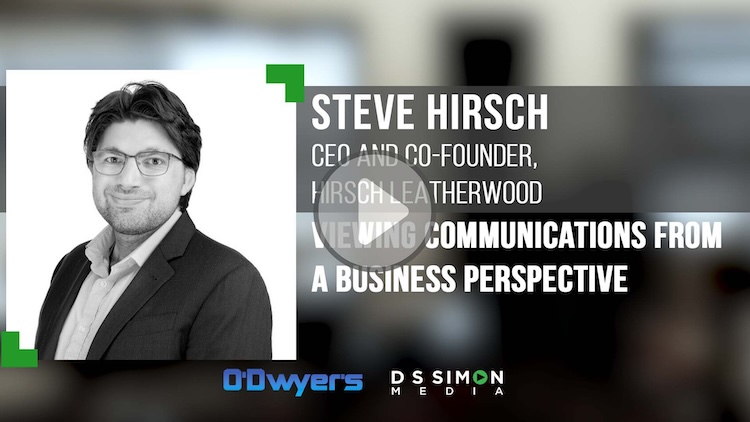



 Have a comment? Send it to
Have a comment? Send it to 
No comments have been submitted for this story yet.